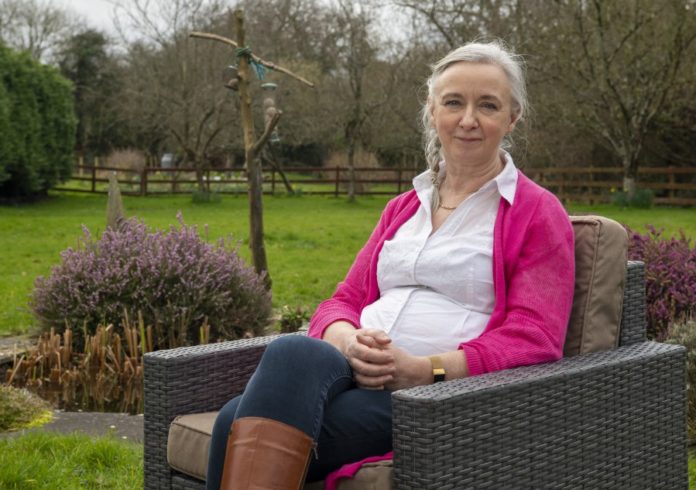A MONTH ago, HSE public health specialist Dr Anne Dee reached her limit.
After a year of battling Covid on the frontline – without adequate support from the authorities and at the expense of her family – she just couldn’t take any more.
‘I left. I went back to a three-day week about a month ago. I was so demoralised,’ she told the Irish Mail on Sunday.
Dr Dee’s departure was not insignificant. She is one of just 60 specialists in charge of the country’s public health units.
‘That was 1% of the national workforce gone. Imagine that,’ she said.
According to Dr Dee, her area – HSE Mid-West – is hardly any better off today than it was at the beginning of the pandemic a year ago.
‘In the Mid-West we have had zero additional resources for anything,’ she said.
‘We have trouble recruiting the staff they have agreed to give us. That’s slow and painful and we’ve had nothing else. We just can’t cope with what we have, never mind trying to cope with new variants.’
In September, public health specialists suspended planned strike action over the Government’s failure to give them consultant status – something that repeated administrations have promised to do for years.
The strike was suspended on ethical grounds since public health doctors had to work through the crisis.
Now, having come through the third wave with less resources than they had for the first wave, most doctors are utterly demoralised.
‘Most of our public health specialists have given up trying to be heard,’ she said. ‘They’ve given up trying to get the message out.’
According to Dr Dee, who is also a member of the Irish Medical Organisation’s Health Committee, her team was weaker during the Christmas wave than at the beginning of the pandemic a year ago.
Last March, the region’s team of 20 was augmented by 50 redeployed HSE workers from other areas – virtually all of whom were sent back to their original jobs last summer.
Today, Dr Dee’s team is less than 35-strong.
‘It’s nowhere near the 70 we had in the first wave and the third wave was 10 times worse,’ she said.
‘So, in practice, what would that mean if the team was tasked with dealing with a new variant case identified as having come through Shannon Airport? We’d have to dump something else. We’d have to dump a number of things. And as the schools are starting back again next week, what do you dump? The nursing homes? The schools? Vulnerable populations? Take your pick.
‘If we put all our workforce into it, we could probably sit on that and gather up all the information as to where they arrived and who they were in contact with but it’s actually quite labour intensive to do it well and to have all the support structures in place.’
Then there’s the question of language difficulties with migrant groups likely to be linked to travel-related variant cases.
‘At a local level we can do it but it’s difficult. It doesn’t happen quickly and there aren’t a huge amount of actual translation resources out there available to us.
‘When we’ve needed it, we’ve done it. I wouldn’t say it’s a huge stumbling block but it’s a stumbling block.’
Whether they be migrants or other marginalised people, Dr Dee said getting the co-operation of such groups is a huge challenge.
‘It’s a massive problem. There are massive problems around that whole area. It’s not just meat workers. It’s around precarious employment in any sector and people living in relative poverty.
‘That includes people living on social welfare and other kinds of precarious situations. All those people have a lot of difficulty cooperating with Covid restrictions for a number of reasons.
‘A lot of these people, certainly in the beginning, were not able to access the Government payments. Even still in some situations, unless you can prove you caught Covid at work, you won’t be paid by your employer.’
Dr Dee said she agreed with the concerns expressed by WHO executive Mike Ryan who this week spoke of humanity ‘writing cheques that it can’t cash as a civilisation’.
‘As a country Covid has definitely shone the light on some of our poorer practices in taking care of people,’ she said.
‘We bring all of these people in to do jobs that no Irish person wants to do on a level of wages that no Irish person will work for and then we complain about them not co-operating when all they are trying to do is keep their job and feed their family.
‘These people, they work in meat factories, they also work in nursing homes and they work as home helps. It really highlights the way our society runs and the focus on profit over people.
‘The root cause is marginalisation. That’s something that’s not a popular message. People like to give out about other people doing stuff with a great sense of righteousness.
‘But if you ask are they willing to pay another pound for a service so this person doesn’t have to live in a caravan or in a house with 11 other people, then mostly the answer is no.’
Despite her concerns, Dr Dee also sees hope. ‘There is hope,’ she said. ‘There is hope that the Government will actually see the point of implementing the recommendations on public health and just get on and do it.
‘With a good public health service functioning, in a vaccinated population, we should be able to manage whatever comes our way unless it’s a very strong variant or another separate pandemic of a different bug.
‘But for Covid we should be able to manage fine if we manage our borders.
‘If we have a properly resourced and public health-led public health function – and that doesn’t seem like an awful lot to ask for really – we should actually be able to manage and life should be able to return to normal.’

